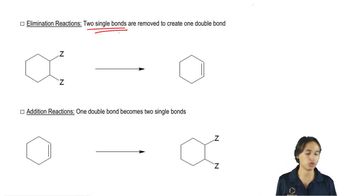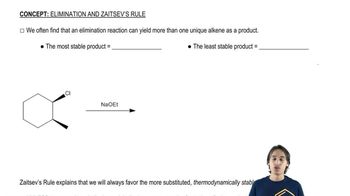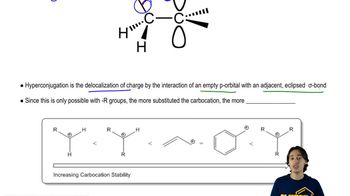Propose a mechanism for each of the following reactions:
a.

 Verified step by step guidance
Verified step by step guidance Verified video answer for a similar problem:
Verified video answer for a similar problem:



 6:01m
6:01mMaster General features of acid-catalyzed dehydration. with a bite sized video explanation from Johnny
Start learning